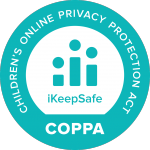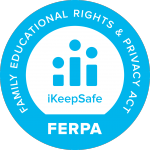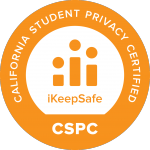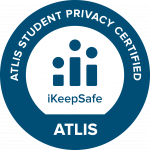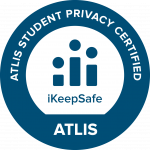If you ask an adult about the most important information they learned in school, they likely won’t cite a particular battle during the Civil War or what goes in the nucleus of a cell. Instead they will likely tell you about a skill they developed, a teacher who inspired them, or an overarching lesson they learned.
Students still memorize facts and learn information solely to get good test scores, but educators are pushing back. They are creating classrooms that meet testing requirements, but also focus on future-ready skills. These skills will last long after the historic dates and mitochondria labels are forgotten. They will also outlast all technology, jobs, and daily activities. Here’s why we’re starting to celebrate future-ready skills.
Future-Ready Students Will Be Ready for Any Workforce
It’s tempting to sign kids up for coding classes in hopes that their status as digital natives will help them thrive when they enter the workforce. In many ways, parents do this to make up for their own technological shortcomings. However, cutting edge technology today will be outdated tomorrow, and the kids who succeed will be those with the skills to learn, think, and plan — not necessarily those who speak certain programming languages.
“In 10 or 20 years, much of what we ‘know’ about the world will no longer be true,” says Greg Satell, innovation advisor and keynote speaker. “The computers of the future will not be digital. Software code itself is disappearing…We need to rethink how we prepare our kids for the world to come.”
The skills that students learn in school will help them become successful adults, no matter what’s ahead.
“Success in today’s world puts a higher premium on character qualities,” Andreas Schleicher, head of education and skills at the Organisation for Economic Co-operation and Development in Paris. “Most employers tell you how important collaborative skills are becoming at the workplace, and that is also what we are seeing in our data. But then you still see most students sitting behind individual desks and learning to take their individual exam.”
While an employer today might test a prospective candidate on Microsoft Excel skills, they just as much want to hire someone who can look at data and interpret what they see.
Changes in technology won’t impact just one type of job or wage level. Hadi Partovi, founder of Code.org and Hour of Code, explains that 51 percent of job activities out of 750 occupations are “highly susceptible to automation” according to the McKinsey Global Institute. With a rate of replacement that high, automation will at least somewhat impact almost every industry or occupation.
“Automation is much less likely to lead to the mass unemployment predicted by alarmists but is almost certainly going to necessitate the redefinition of most occupations and requisite skills,” he notes.
You want to prepare your students for anything and give them the skills to thrive in the future. But we don’t have a lot of the technical knowledge yet to teach them. What we can teach them are future-ready soft skills that will be applicable no matter what our technological environment looks like.
A Future-Ready Focus Helps Students With Facts and Figures
This focus on future-ready skills can also help students when they do need to remember certain facts and figures. In an article for Edutopia, research and standards editor Youki Terada explains why people forget things, comparing memory to a spiderweb connecting information.
For example, memorizing a collection of random words is hard, but memorizing an acronym connects the concept to memories, sounds, tastes, and feelings. This is why students learn music notes as “Every Good Boy Deserves Fudge” because they can place a fun phrase or feeling on top of confusing circles and lines.
Terada cites the research of psychologist Hermann Ebbinghaus, who found that without reinforcement or prior connections, 56 percent of information is forgotten in an hour, 66 percent in a day, and 77 percent in six days.
We do a disservice to students when we focus exclusively on facts and testing, rather than giving them space to explore and build connections, argues education journalist Natalie Wexler, author of The Knowledge Gap. As an example, she writes: “If students arrive at high school without knowing who won the Civil War they’ll have a hard time understanding a textbook passage about Reconstruction.” We tend to be so focused on math,reading, and hard skills that kids don’t have time to explore concepts and build connections.
“There is no doubt that academic content knowledge is part of a recipe for success,” Kelsey Bednar writes at Defined STEM. “But information on its own will not be enough to help young adults successfully navigate and succeed in an ever-changing work landscape.”
Developing future-ready skills goes hand-in-hand with letting students learn educational concepts. The strength of one builds on the other.
Teachers Can Give Their Classrooms a Future-Ready Focus
Future-ready learning is all about developing lifelong skills that can be applied in multiple ways. For example, learning coach Marcia Kish and Jeff Kish, an IT specialist, tie every consultation or project back to the question: How can the learners showcase what they have learned?
Most teachers say they give students quizzes or create exit tickets to complete by the end of the day. While these deliverables show that students can memorize certain concepts, they don’t demonstrate whether young learners can apply the ideas of negotiation and strategic decision-making outside the classroom.
Admittedly, the process of developing a future-ready curriculum isn’t always easy.
“Moving to a skills-based approach requires abandoning content we have been using for years,” educational consultant Sara Wicht writes. “It requires rewiring the way we think about and map our scope and sequence and define student outcomes.” She uses the example of students being able to identify character development and plot elements in Lord of the Flies, even if they don’t remember every detail in the book.
However, there are ways you can incorporate long-term skill building in your class. Educational consultant Kyle Wagner encourages teachers to use community service projects to develop future-ready skills. Presenting a problem and asking students to take steps to solve it taps into concepts like creativity, teamwork, and critical thinking. Most of these students will develop these skills without even realizing it.
Wagner’s advice is to take a hands-off approach and let students come up with their own plans. The less you micromanage, the more opportunities students will have to thrive. We plan to explore how you can incorporate future-ready skills in your class, even if you’re strapped for time, resources, and extra space in the curriculum.
Follow Ozobot on Our Journey Exploring Future-Ready Skills
We don’t know what the future of technology looks like. We can’t say for sure what jobs will be replaced by robots or the problems AI will solve. But we do know what humans will need to work with technology and each other as a society.
In 2019, Ozobot is dedicating itself to future-ready skills. We will be taking deep dives into what it means to be future-ready, and how various skills help students grow as humans while preparing them for any career field they enter. From neuroscientists to artists, accountants to educators, these skills will be essential for students to live healthy lives and grow professionally in their future careers. The concepts and questions we hope to explore in the coming months include:
- Creativity. How can we use technology and other tools provided to us to solve problems?
- Collaboration. Why will it always be important to work as a team, even though we have all of these technological advances?
- Critical Thinking. In a world of endless information, how can students identify relevant information and discern factual news from fake stories or opinions?
- People Management. How can students lead and inspire each other to do the best job they can?
- Emotional Intelligence. How can you teach such an abstract concept which is so important to understanding others?
- Service Orientation. Why should students care about others, and how can we empower them to do so?
- Negotiation. How can students learn to compromise and still advocate for what they want or need?
- Decision Making. How can we prepare students to make smart decisions using the information available to them?
- Cognitive Flexibility. How can students learn to communicate with different people and audiences, and why is this important?
- Cognitive Problem Solving. How can students tap into their true potential to solve problems and build tools to achieve their goals?
Most adults would be happy to have mastered four or five of these future-ready skills. While we can’t expect students to be perfect, we can give them the tools to develop these skills, so they continue to hone them all their lives. These are lessons they will remember long after they leave the classroom, regardless of what their futures hold.
Images by: dolgachov/©123RF.com, dglimages/©123RF.com, sweetlouise, sweetlouise




